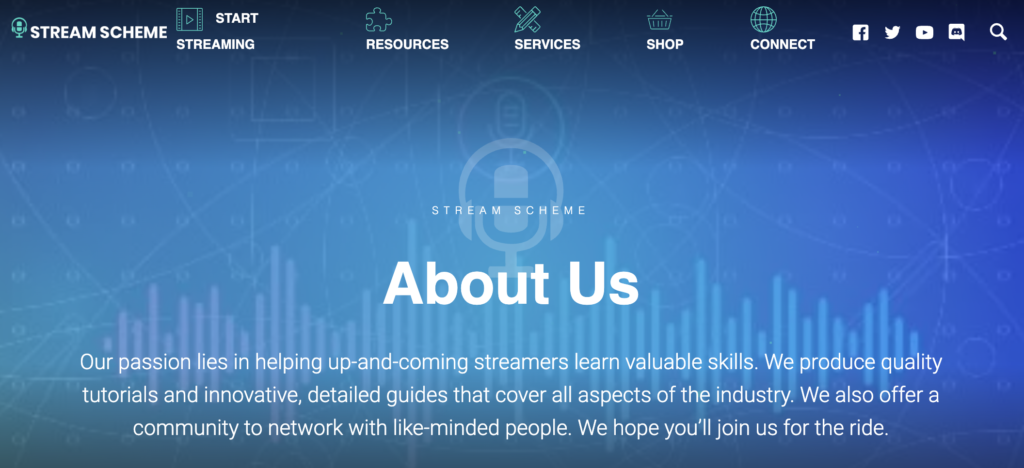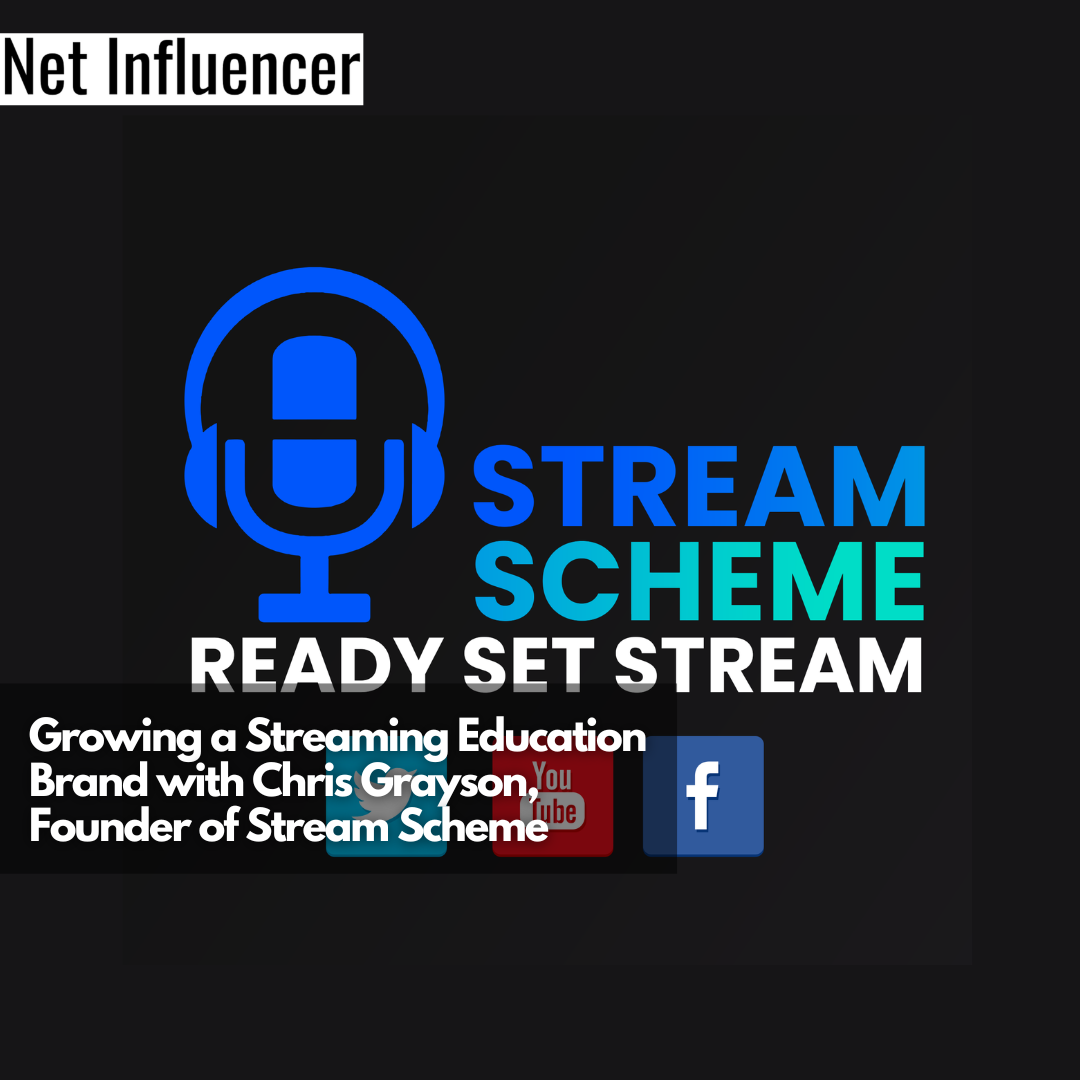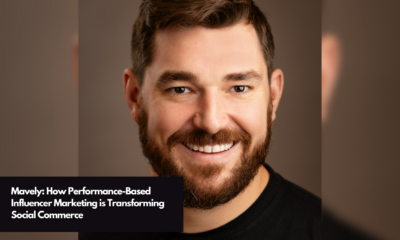Talent Collectives
Growing a Streaming Education Brand with Chris Grayson, Founder of Stream Scheme
The influencer space lacks education opportunities, especially from individuals with actual experience growing and managing successful platforms. Chris Grayson, the Founder of Stream Scheme, and his team have built a streaming education and coaching brand to fill this hole in the market and help educate beginner and intermediate streamers on building their platforms.
About Chris Grayson
Chris Grayson has a background in digital marketing, where he was exposed to working with influencers. This experience sparked a deep-rooted interest in him.
In 2019, he began developing Stream Scheme with his partner, Luci, a freelance writer, novelist, and active blogger.
What is Stream Scheme?
Stream Scheme is the largest website in streamer education.
Twitch and YouTube both have a rich background in gaming and streaming, which Stream Scheme addresses with detailed guides covering every aspect of streaming.
Chris shares, “We specialize primarily in education early on, so helping streamers grow, troubleshooting common problems they had. Over that time, I started working with another friend of mine who ran our YouTube channel, and we built that to 181,000 subscribers over the course of two years in the same space.”

Chris’ knowledge of promotional and content strategies is helpful for designing practical educational content for beginner and intermediate streamers.
Besides providing educational resources, Stream Scheme’s primary services include channel reviews, custom strategy sessions, and group coaching. Stream Scheme’s educational content has also expanded into a few other topics, such as Instagram and TikTok, but these topics are used to create funnels that drive traffic to your stream.
Growing a Coaching Business
Chris shares that most of Stream Scheme’s business can be attributed to their free content online.
“The biggest [strategy] one we did was we released a lot of content for free. We pushed hard on YouTube, and we pushed hard on the website to make free content that was available to anyone and that essentially, in turn, acted as our funnel. We never really actively pursued clients. They found us, so it was a lot of work to really get moving in the early stages.”
He adds that they never planned on being a coaching business. However, this turned out to be a lucrative spinoff for the education-based Stream Scheme business model, which was supported by ads and sponsorship deals with large brands.
“Even though we work with influencers now, the way I look at it is we sort of started as influencers, which really helped me understand the common problems they face: being bombarded with emails every day that are spam asking me to work with you. We saw it all firsthand.”
Chris’ firsthand experience as an influencer gave him a plethora of ideas for structuring his business and the type of advice he wanted to focus on.
When building his business, Chris shares that they also focused on creating organic content and a lot of free tools, such as Twitch overlays and graphics, to provide readers with extra value.
“In the modern day, where everyone’s trying to sell something, it was very refreshing to have people use your products for free and trust you because of it, so I think we built a really strong base, and that really helped us.”
This trusting fan base was a huge positive when they launched their coaching services, as the fan base was already exposed to and utilized the brand’s resources.
Another key part of Stream Scheme’s marketing strategy was proof-based examples of what Chris and his team could do for streamers. He adds that many gurus out there don’t actually live and breathe what they advise on, whereas his team does.
Stream Scheme also partners with various influencers and even features many as guest writers on their website, giving them additional credibility and in-depth education on different niches.
The Evolving Industry
“In my opinion, a lot more people [are] looking for brand trust. They’re looking for the face of a brand.”
Chris explains that anonymous brands with just a company logo and no “face” may not go as far in today’s culture. For example, he shares that a landscaping company may experience better results from their marketing efforts by including videos on their website and visiting clients in person because people will connect with the brand more.
“In terms of how the industry is shirting on the content marketing side, we’re seeing a lot more spam content, a lot more AI-generated articles, and a lot more experts that don’t really have any authority.”
Unfortunately, he doesn’t expect this trend will change anytime soon. Another trend he expects is influencers who aren’t real people growing large followings.
However, these changes will only make brand authenticity even more important, especially in oversaturated markets.
Chris’ Tips for Growing Your YouTube Channel
“My biggest advice for growing on YouTube is to work on other platforms as well. You really need to sort of start building your brand across multiple social platforms and also need to be really consistent. The editing and the production value need to be high.”
He explains that it’s okay to start recording videos on a phone, but a higher production value with great content, editing, transitions, SEO, and subtitles will help you stand out from the crowd.
If you can build an audience on YouTube, which has a high ceiling, Chris adds that it’ll be much easier to build a following on other platforms, like Instagram, TikTok, and Twitter.
“I’d say that my biggest tip is to build on multiple platforms and tackle the most difficult platforms… we’ve found that YouTube works as the best funnel… It’s more reliable than Google at the moment in terms of if the content you’re producing is good, the algorithm’s going to pick it up and push it aggressively.”
Changes in the Influencer Space
In the future, Chris anticipates that more brands will recognize the value of micro-influencers and spread their marketing budget over a handful of them rather than macro influencers.
“A brand might be able to spend money on 20 influencers, were in the past, they might have just pumped money into one or two. They could really test and see what works with their brand a bit more, and that’s the way I think it’s going.”
He adds that as technology evolves, more and more people can go live easier because they no longer need expensive equipment to do so.
“There’s a lot more content being made, which is good. It’s great, but a lot more competition. It’s harder than ever to become an influencer, but you’ve also got more opportunities and more platforms to work with.”
The Future of Stream Scheme
Chris shares that his company will focus less on written content and more on interactive content, such as quizzes, education-integrated videos with tests, and much more. The hope is that more interactive content will continue to keep their target demographic’s attention spans, which can tend towards the short side.
“We see that within the influencer space; there’s not a lot of education. There’s not a lot of formal education like you can’t go to a university or a college and learn how to be an influencer… it’s a very lucrative job if done correctly, so we’d like to build more education in the space.”





















